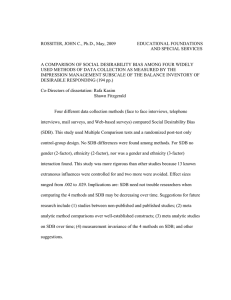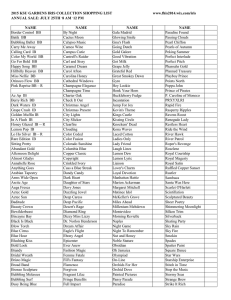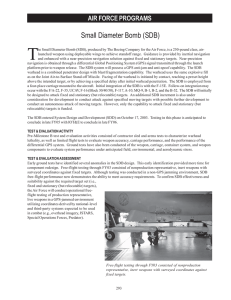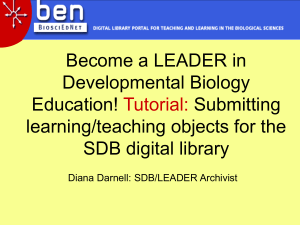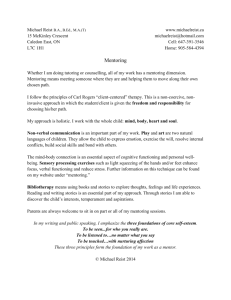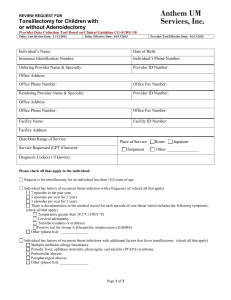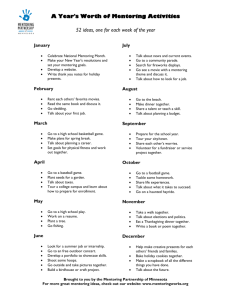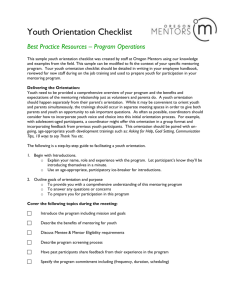UFCD_HRSA_Needs_Assessment-FINAL
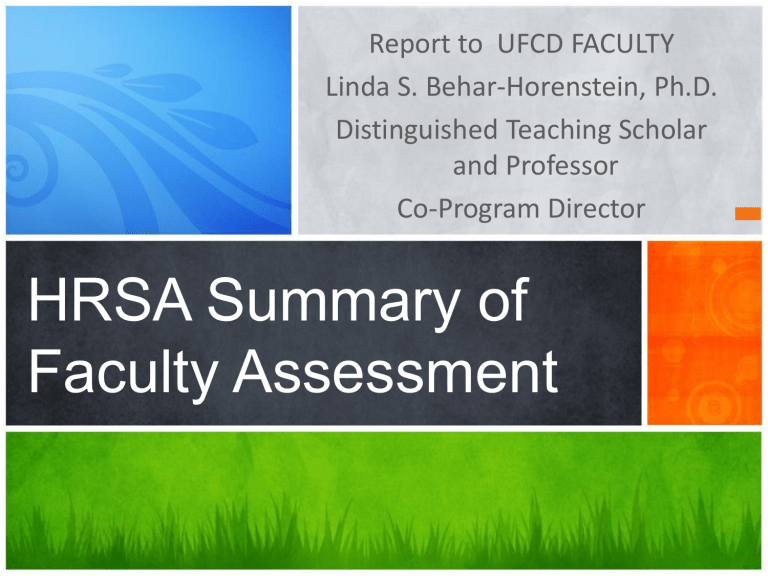
Report to UFCD FACULTY
Linda S. Behar-Horenstein, Ph.D.
Distinguished Teaching Scholar and Professor
Co-Program Director
HRSA Summary of
Faculty Assessment
Summary of Surveys Administered
Needs Assessment
Knowledge, Efficacy, and
Practices Instrument for Oral
Healthcare Providers (KEPI)
Marlowe Crowne Social
Desirability Scale
Deamonte Driver Scenario
Defining Issues Test- 2
Determines faculty needs relative to teaching, assessment, mentoring and scholarship.
Measures cultural skills.
Measures social desirability.
Measures attitude towards
Medicaid patients.
Measure of moral judgment
Needs Assessment - Findings
Highly Requested Priorities for Teaching
Teaching effectively
Providing constructive feedback to learners
Using effective assessments
Enhancing small group learning
Using emerging technology in the classroom
Priorities for Scholarship
Documenting education outcomes
Grant writing
Developing research designs
Writing an education manuscript
received substantial “none to
very little knowledge” ratings.
Priorities for Administrative & Leadership Skills Career
Advancement
Balancing work and personal responsibilities
Demonstrating leadership skills
Managing stress
Managing time
Sustaining passion for teaching.
How could mentoring be improved
Explicit, mentoring processes
A structured component of the department
Assigned mentors to mentees,
Goal-setting for faculty tenure as a central focus and training for mentors.
Allotted time for mentoring activities—as reflected in work load.
KEPI - FINDINGS
Background about KEPI
• Three subscales: Knowledge of Diversity, Efficacy of Assessment and Culture-Centered Practice.
• Rating scale of 1 to 4, where 1=low and 4=high.
• Social desirability bias refers to people reporting inaccurately (rather than how they truly feel or believe) on sensitive topics in order to present themselves in the best possible light. This can be due to both self-deception and other-deception.
• Data were normally distributed as confirmed by visual inspection of box-plot and quintiles.
• Estimates of Reliability for DN-2016,
DN-2015, and Faculty are strong:
.86, .91., and .90 respectively.
• DN-2016 exhibiting social desirability bias (SDB) scored higher on Knowledge of Diversity with a mean score of 3.47 compared those without
SDB 3.23 (p<.045) and Culture-Centered
Practices - with SDB 2.54 vs. no SDB 2.10
(p<.002).
• Faculty exhibiting social desirability bias (SDB) scored significantly higher on Efficacy of
Assessment , mean score of 3.11 compared those without SDB 2.84 (p <.035).
• Faculty scored significantly higher than students on two subscales.
Significance Culture-Centered
Practice
Faculty
Student
2.52
2.15
p. < 0001
Efficacy of
Assessment
Faculty
Student
2.96
2.63
P<.0002
DIT-2
Background about DIT-2
• Assessed ability to apply moral principles when developing a solution to a general dilemma.
• After taking an initial position on each dilemma, you were asked to rate and rank 12 arguments for each problems.
• Three subscales: PI = personal interests; N= maintaining norms; P=postconventional.
DIT-2 - Findings
Faculty n=35
Class of
2016 n= 82
Class of
2015 n=79
PI
23.27
23.21
21.69
N
34.11
34.54
34.87
P
34.86
37.65
38.58
Faculty, DN-2016 and DN-2015 Scores
45
40
35
30
25
20
15
10
5
0
Faculty (n =35) Class of 2016 (n =82) Class of 2015 (n = 79)
PI
N
P
Interpretation of DIT-2
• Similarity between Faculty, DN-2015 and DN-2016.
• Note that average adult selects
POSTCONVENTIONAL (P) arguments 40% of the time.
• Average graduate student selects P 53.5%.
• Average dental & medical graduate students
select P about 50% compared to UFCD, DN2016 and DN2015 scores of 34.9, 37.7, and 38.6 respectively.
Importance of these scores
• Persons who apply moral ideals and principals to the resolution of complex social problems generally are better able to develop wellreasoned solutions to problems within their problems.
• Ability to reason well about complex moral problems predicts wide range of pro-social behaviors, including high ratings on clinical performance measures.
SUMMARY: Faculty Development Needs
• Teaching effectively, giving constructive feedback, using assessments effectively, and teaching small groups.
• Writing educational research and grants and applying use of research design.
• Balancing time and stress.
SUMMARY: Faculty Development Needs
• A formal mentoring process.
• Expanded awareness and increased skills in cultural competencies.
• Enhanced skills in ethics and reasoning.
Deamonte Driver Scale
